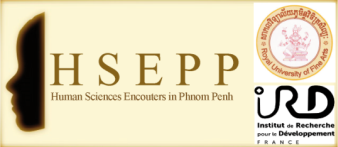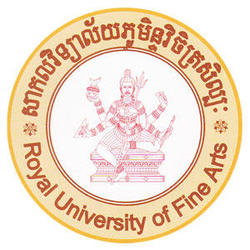Project initiators and partners
Initiators
UMI 233 trans VIH MI/INSERM U 1175
Université Royale des Beaux Arts Phnom Penh
Partners
http://sites.sas.upenn.edu/tlc/
logo tlcAgence Universitaire de la Francophonie - Bureau Asie Pacifique
HSEPP support the Manusastra Project
Higher Education Development in Cambodia: Whose Project? For Whom? Where To? by Leang UN
Higher Education Development in Cambodia: Whose Project? For Whom? Where To?
by Leang UN
29th April 2016 at RUFA
Abstract :
The attempt to develop Cambodia as a whole and in (higher) education sector in particular after the end of colonialism was very short. Less than two decades after it got independence in 1953, Cambodia fell into the Vietnam War, followed by first civil war (1970-75) before it went through genocide (1975-1979) where Cambodia has been known internationally as Year Zero. Throughout the 1980s and until early 1990s, Cambodia continued to experience second civil war. The 1991 Paris Peace Agreement marked a significant, if not the lone step towards turning the country from a socialist and communist ideology to democracy, from planned economy to a market economy and from isolation to regional and global integration. Since then, the country has changed quite substantially. In particular, the landscape of higher education has transformed dramatically, especially since the late 1990s, moving from elite to mass education, both in terms of higher education institutions and student numbers, due to the introduction of privatization where government allowed private higher education to be established and public higher education institutions to operate fee-paying programs for self-sponsoring students.
This talk will focus onthe process of policy formulation in the heavily aid-driven Cambodian higher education sector, asking who introduces these reforms and who benefits, but also what questions and voices are forgotten in that process. Specifically, it will seek to answer the following questions:
1. Who have been the key players in debate over HE policy in Cambodia since the 1990s?
2. What have been their agendas?
3. How and why has the relative influence of different stakeholders shifted over time?
4. What have been the implications for the construction of Cambodia’s HE system to date?
These four interrelated questions will reveal the extent to which recent reforms of higher education have truly benefited Cambodia’s development.
biography :
Leang UN was educated in Cambodia, the Philippines and the Netherlands in philosophy and social and comparative education. He earned a PhD in Social and Behavioural Science from the University of Amsterdam, the Netherlands in 2012.
Since 1995, he has been engaged in Cambodian higher education sub-sector in various capacity, at the institutional level as student, lecturer and director of education graduate program and at the system level as chief of research and innovation grant (Higher Education Quality and Capacity Improvement Project, funded by the World Bank), deputy director of Department of Higher Education and currently as deputy director general, general directorate of policy and planning, Ministry of Education, Youth and Sport (MoEYS). He is also a research fellow at Education Research Council, MoEYS. He was a senior research fellow at the Center for Khmer Studies, a former research fellow at Mekerere University, Uganda, and a visiting scholar at the Northern Illinois University, USA. His research interests, publications and teaching focus on (comparative) education policy and its contribution to national development; curriculum reform and development, and assessment and pedagogy.








